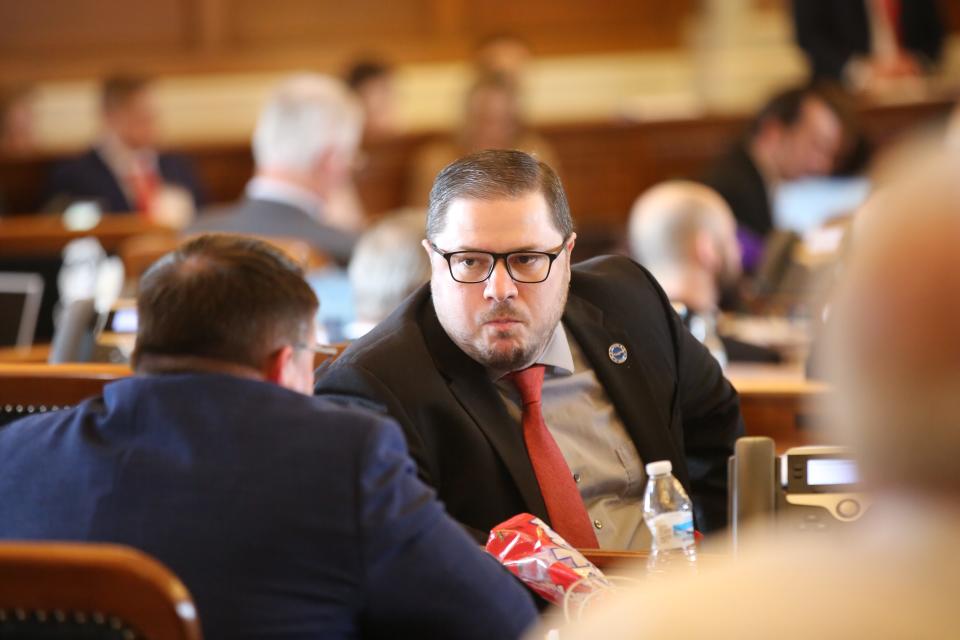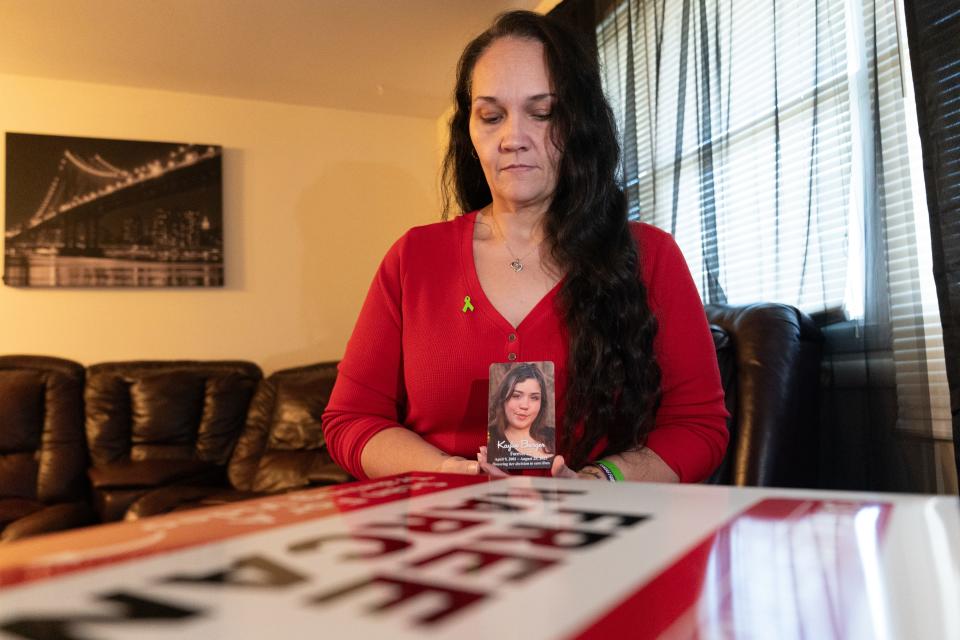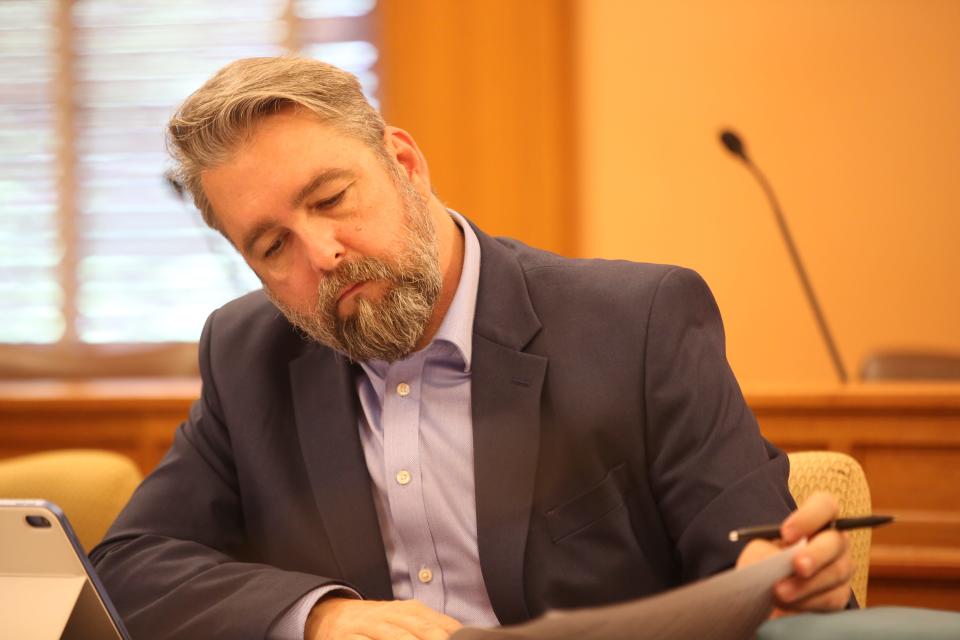New Kansas law means you can call 911 for a drug overdose and not be charged with a crime
- Oops!Something went wrong.Please try again later.
With a goal of decreasing drug deaths, Kansas lawmakers have granted immunity to people who seek medical help for people who are overdosing.
Gov. Laura Kelly on Thursday signed Senate Bill 419 into law after it passed unanimously in the Legislature.
The legislation, known as a good Samaritan law, is intended to get bystanders to call 911 to seek medical aid for someone suffering from a drug overdose without fear of facing criminal charges for using illegal drugs. The idea had bipartisan support as a way to fight fentanyl and other overdose deaths.
"It's critical that all Kansans are empowered to seek or deliver medical assistance during an emergency," Kelly said in a statement. "This bill is a lifeline for families and Kansans who are battling substance use disorders. It will save lives and provide the opportunity for recovery."

Kelly also signs bill with tougher penalties on fentanyl-related crimes
Kelly also signed Senate Bill 414 into law on Thursday. That legislation also passed unanimously and includes tougher penalties on fentanyl-related crimes, including manufacturing and distribution.
Once the good Samaritan law goes into effect on July 1, a person would have immunity from arrest or prosecution for possessing a controlled substance or drug paraphernalia as long as they sought help for themselves or someone else in need of medical assistance while under the influence of a controlled substance. That person must either render aid or initiate contact with law enforcement or emergency medical services and then cooperate with the authorities.
The person who was in need of medical assistance would also have immunity, as long as they also cooperated with the authorities.
There would be no immunity for possessing drugs with an intent to distribute, or possessing paraphernalia for producing drugs.
The legislation was originally introduced as House Bill 2487 in a joint effort by Rep. Nick Hoheisel, R-Wichita; Rep. John Alcala, D-Topeka; Rep. Jason Probst, D-Hutchinson; and Rep. Pat Proctor, R-Leavenworth. Previously, the lawmakers had been pursuing at least two separate bills.

Amber Saale-Burger, of Topeka, had been an advocate for a good Samaritan law after losing family to fentanyl overdoses.
"I know that with my son-in-law and my sister-in-law, had this law been in place, and those people knew that they weren’t going to jail, they would have gotten 911 there quicker," Saale-Burger previously told The Capital-Journal. "And I honestly feel like they'd still be here if we had that law."
More: After several relatives died of fentanyl overdoses, Topekan fights for good Samaritan law

Legislator advocates say good Samaritan law will save lives
In statements through the governor's office, Hoheisel and Probst agreed that the new law will save lives.
"Whether it's teenagers experimenting with pills or older individuals battling addiction, each life is a precious gift deserving preservation," Hoheisel said. "While advocating for stricter penalties for those involved in drug distribution, immediate action is imperative to keep those already struggling with addiction alive long enough to seek help."
"Friends and relatives will now be able to call for assistance in the event of an overdose without undue fear of arrest and prosecution," Probst said. "This bill comes on the heels of the decriminalization of fentanyl testing strips — and combined these two policies work to protect vulnerable Kansans by keeping them alive long enough to get the help they need to healthily recover. This bill represents the sort of compassion and acceptance I've always known lives in the hearts of so many Kansans."
More: Kansas is the latest state to decriminalize fentanyl test strips to slash overdose deaths
Jason Alatidd is a Statehouse reporter for The Topeka Capital-Journal. He can be reached by email at jalatidd@gannett.com. Follow him on X @Jason_Alatidd.
This article originally appeared on Topeka Capital-Journal: Kansas good Samaritan law intended to save lives from drug overdoses

